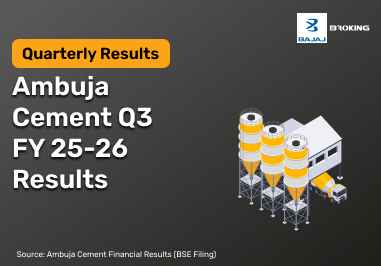The investments made by foreign institutions in another country are known as “foreign institutional investments (FIIs). The institutions making such investments are neither registered nor headquartered in the country in which they invest. Hence, they are called foreign. Examples of FIIs include mutual funds, investment banks, pension funds, and hedge funds investing in a country other than the country they are registered in. FIIs improve the flow of capital in the country they invest in, which increases the depth and liquidity in the capital market of that country.
What are Foreign Institutional Investors (FIIs)?
The main purpose of encouraging FIIs is to improve capital flows into the countries in which they invest. For example, when pension funds, MFs, insurance companies, or investment funds headquartered in other countries invest in Indian equities, it helps provide Indian companies with much-needed capital. So far so good.
However, the excessive influence of FIIs over domestic companies can also affect them adversely. Hence, such investments tend to be tightly regulated in developing markets, like India. FIIs have to follow processes set by the regulators in other countries. They also have to adhere to limits on the total number of shares and value of assets they can buy in a single company.
How do Foreign Institutional Investors Work?
To invest in India, FIIs have to be registered with the Securities and Exchange Board of India (SEBI). The regulations for registration vary basis the kind of FII investing in India. After registering with SEBI, a number of FIIs opt for the portfolio investment scheme (PIS) to invest in the Indian stock market.
This scheme allows FIIs to invest in shares and convertible debentures of Indian companies listed on the stock exchanges. The regulations allow FIIs to invest in initial public offerings (IPOs) in India and also in the secondary markets. Moreover, FIIs are permitted to invest in several kinds of government securities, such as credit-enhanced bonds, non-convertible bonds, commercial papers, etc.
Types of Foreign Institutional Investors
It is important to understand the types of FIIs that invest in India:
a) Foreign government agencies:
These include entities and organisations related to governments in foreign countries. Such entities invest in the capital markets of other countries. They help promote investments and improve trade and diplomatic relations between countries.
b) Sovereign wealth funds:
Such funds are owned by the government of a foreign country. They manage the wealth of their country in order to grow it for future generations.
c) Foreign central banks:
The central monetary institutions of foreign countries come under this category. They tend to hold enormous foreign exchange reserves, which they can invest in stocks, bonds, and other securities in India. One of the key objectives for their investments is to stabilise their exchange rates.
d) International multilateral organisations:
When three or more countries come together to deal with economic and financial challenges in the world, they form international multilateral organisations. Their objective is to promote development, provide financial support, and boost the economic stability of countries.
Benefits of Foreign Institutional Investors
There are many benefits of FIIs, prominent ones are explained below:
Important source of capital:
FIIs provide capital to companies in other countries by investing in their shares, bonds or debentures. These companies, in turn, use the capital to grow and expand their operations.
Better governance:
When FIIs invest in companies, they typically expect better corporate governance, leading to greater accountability and transparency in those companies.
Improve the depth and liquidity of other financial markets:
FIIs tend to be huge investors, as they bring in significant capital flows, which improve the depth and liquidity of other financial markets.
Better diversification of their own funds:
When FIIs invest in the capital markets of other countries, they are able to find investment opportunities across the world. Besides, they are also able to diversify their funds, thereby de-risking their investments to an extent.
Help build foreign exchange reserves:
When FIIs invest in another country, they help build the foreign exchange reserves of that country. Such inflows help stabilise the local currency by increasing its demand.
Role and Functions of Foreign Institutional Investments
FIIs play an important role in the capital markets of the countries they invest in. Some of their roles have already been explained under their benefits. For example, they help improve the depth and liquidity of the capital markets of other countries. Moreover, by providing capital, FIIs enable companies in other countries to grow. In addition, FIIs perform the following roles:
Improve the availability of information:
FIIs invest in other countries only after conducting thorough research. Their research and insights help other investors make better decisions. Hence, they improve the availability of quality information in other capital markets.
Impact on the prices of securities:
When FIIs invest in the securities of other countries, it impacts their prices. If they buy in excess, it increases the prices. Conversely, when they sell a lot, it creates a downward pressure on prices. Retail investors should be cautious of excessive price swings in their market due to buying or selling by FIIs.
Example of a Foreign Institutional Investor (FII)
A healthcare investment fund based in Germany invests in Indian pharmaceutical companies. These companies produce low-cost medicines and export them worldwide. They are listed on Indian stock exchanges.
The German fund buys shares during a public issue and also from the open market. It holds these shares over time, expecting the companies to grow. This is a direct form of foreign institutional investment.
The people whose money is in the fund include German workers and retirees. They do not buy Indian stocks themselves. But they benefit from the fund’s exposure to India’s growing pharma sector.
This is one example of foreign institutional investors taking part in India’s markets. Foreign institutional investors help bring money from outside India into local industries. In return, they get a share of the profits from Indian companies. This link between global investors and local businesses makes foreign institutional investors an important part of the Indian economy.
The Impact of FIIs on the Indian Stock Markets
FIIs Affect Market Movements
When foreign institutional investors buy or sell large volumes of shares, stock prices can rise or fall. This often leads to market ups and downs. It also changes investor confidence.
Increase the Money Flow
FIIs bring in money from other countries. This adds cash to the Indian market. It helps companies get funds to grow their business or pay off their loans.
Make Pricing More Accurate
Many types of foreign institutional investors use research and data to pick stocks. Their choices help make stock prices more fair and closer to the real value of a company.
Help Certain Sectors Grow
FIIs often choose industries like banking, tech, or clean energy. When they invest in one area, it helps that sector grow faster by giving it more funds.
Support the Economy
Foreign institutional investors give companies more ways to raise money. This helps create jobs, build infrastructure, and grow the economy.
Where Can Foreign Institutional Investors Invest in India?
Public Issues and Stock Market
Foreign institutional investors can buy shares, bonds, and warrants from IPOs and on stock exchanges.
Indian Mutual Fund Units
They can invest in mutual fund schemes run by Indian fund houses. These may be listed or unlisted.
Collective Investment Schemes
FIIs may put money into pooled schemes that spread investments across different areas like real estate or agriculture.
Stock Market Derivatives
They can trade in futures and options on stocks or indexes. This helps them manage risk.
Government Bonds and Short-Term Debt
FIIs may invest in long-term government bonds and commercial papers issued by Indian companies.
Credit-Protected Bonds
Some bonds offer guarantees. These credit-enhanced bonds lower the risk for foreign institutional investors.
Indian Depository and Security Receipts
FIIs may buy financial tools that represent ownership in Indian or foreign companies.
Bonds in the Infrastructure Sector
They can invest in bonds from Indian companies that work in transport, energy, and other public services.
Bonds in the NBFC Sector
FIIs can also invest in debt from finance companies not regulated as banks. These firms lend to small businesses or build large projects.
Infrastructure Debt Funds
Some funds focus only on building roads, rail, or energy systems. Foreign institutional investors can invest in their bonds, which are paid in Indian rupees.
Differences between FDI & FII
FDI and FII seem to be related terms. However, there are important differences between the two, which are explained below:
Criteria
| FDI
| FII
|
Definition
| When a foreign investor directly invests in the business of a company in another country, it is called a foreign direct investment or FDI.
| When a foreign investor invests in the stock, bond, or any other security of listed companies in the capital market of another country, it is known as a foreign institutional investment (FII).
|
Objective
| The main objective of an FDI is to control a business. Hence, in the case of an FDI, a foreign organisation either sets up a subsidiary in another country, enters into a joint-venture (JV) with a local company, or acquires a local company through mergers and acquisitions (M&A).
| The main objective of FII is to earn a profit through investing in securities in another country without controlling the business of the companies being invested in.
|
Control
| As the intention is to control a business, FDI investments tend to be long-term in nature.
| Since the objective is to make a profit through trading in securities, the duration of FII investments tends to be shorter than FDI.
|
Factors Associated with Foreign Institutional Investors
While making investments in other countries, FIIs typically consider these factors:
Political stability:
FIIs prefer investing in countries with political stability. A politically unstable country poses several risks, including frequent changes in its rules and regulations. Hence, they prefer politically stable countries to invest in.
Liquidity:
Just like any other investor, FIIs consider the liquidity of the market they invest in. If a market does not have sufficient liquidity, it may make it difficult to buy or sell securities. Hence, it is an extremely important factor.
Exchange rate:
When an FII invests in another country, it converts its local currency into the currency of the country it is investing in. Hence, it is extremely important that the currency of that country is stable. Otherwise, it may pose a significant risk to the FII.
Conclusion
FIIs are an important source of capital flows in many countries, including India. When FIIs invest in the assets of other countries, it sends a positive signal to the financial community worldwide. Besides, such investors improve the depth and liquidity of the countries in which they invest. That said, FIIs’ activities need to be regulated to protect the interests of local investors. Otherwise, their trades can result in excessive price swings much to the dismay of local investors.
Disclaimer: Investments in the securities market are subject to market risk, read all related documents carefully before investing. This content is for educational purposes only. Securities quoted are exemplary and not recommendatory.
For All Disclaimers Click Here: https://bit.ly/3Tcsfuc













